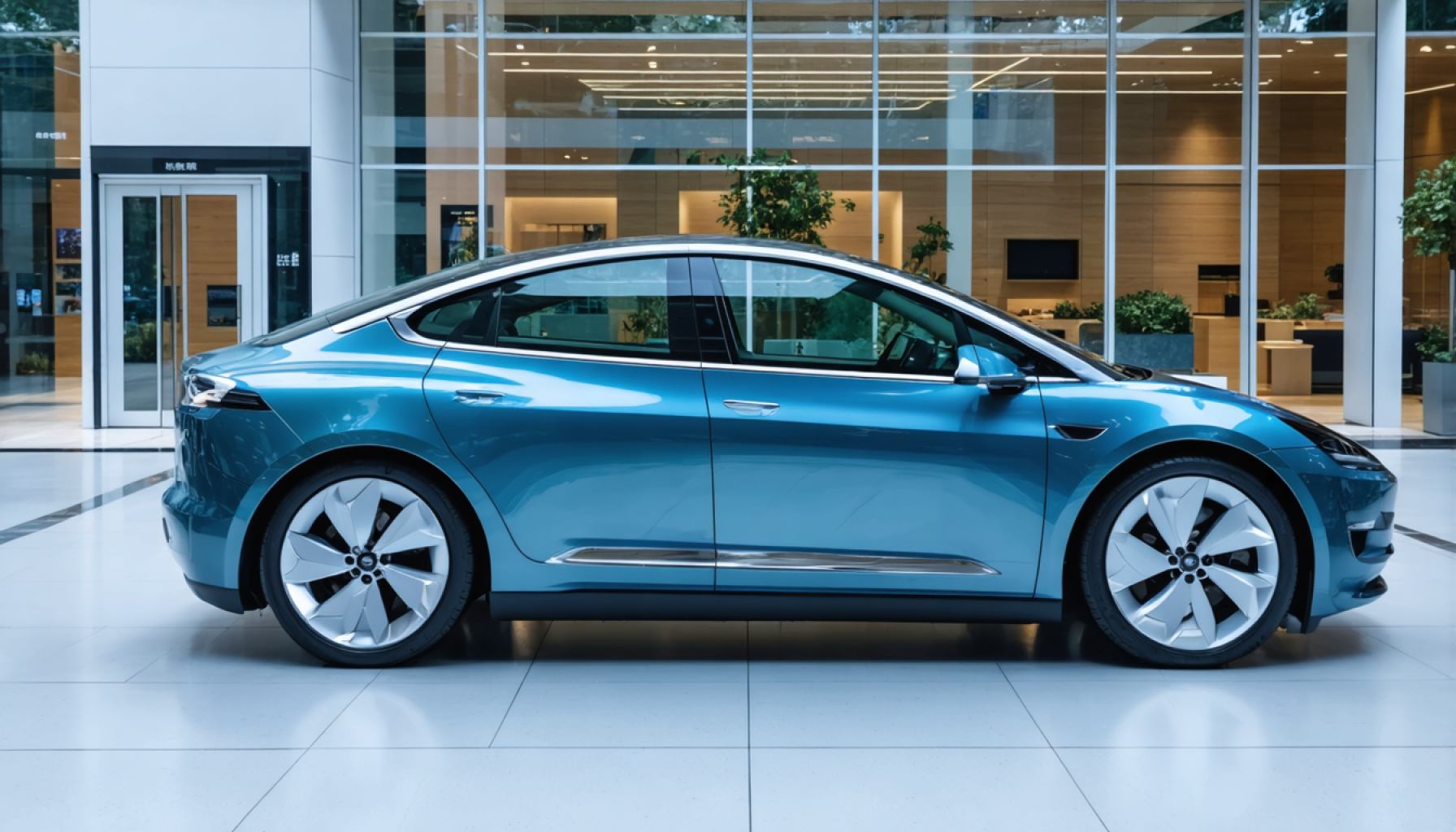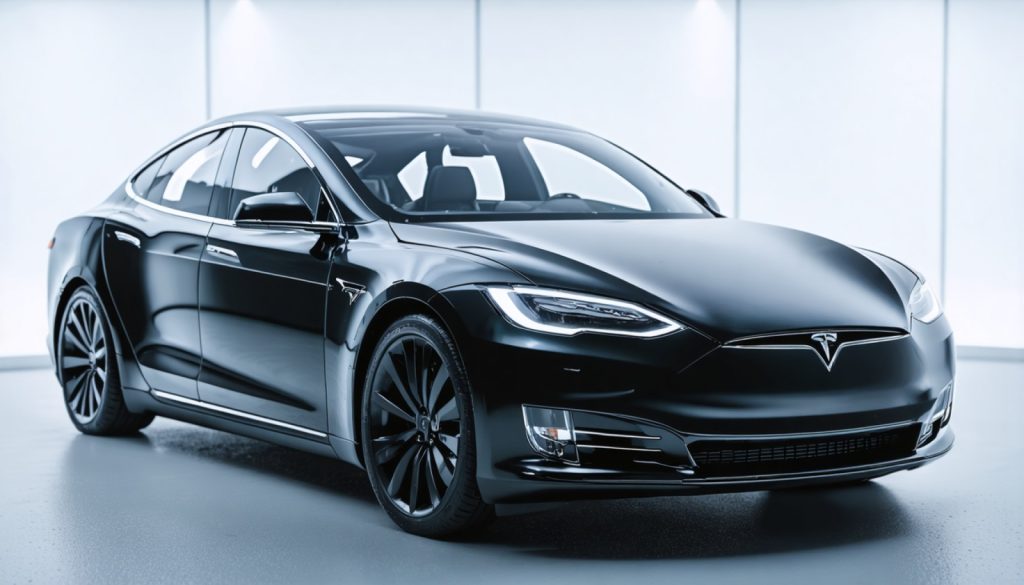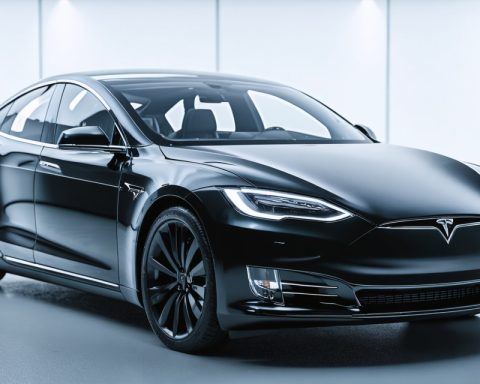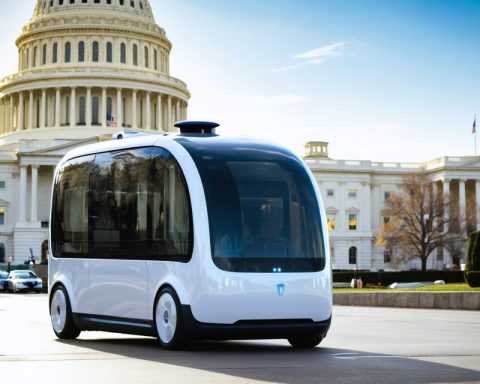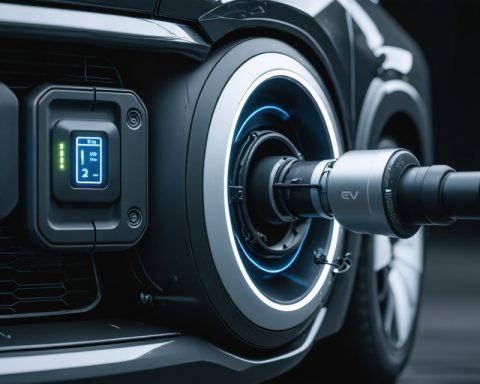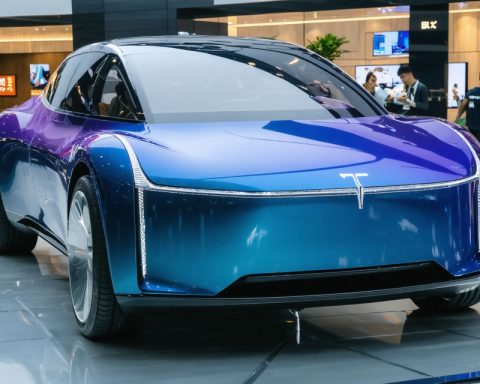- Chinese electric vehicle (EV) brands are gaining traction in Germany, challenging established auto giants.
- BYD, a major Chinese automaker, significantly increased its presence with an impressive 335% surge in registrations.
- Leapmotor debuted with 332 registrations, while Xpeng and Nio experienced mixed results, indicating varied brand reception.
- Germany saw a 35.5% rise in battery electric vehicle (BEV) registrations and a 65.8% increase in plug-in hybrids, reflecting shifting consumer preferences.
- Tesla faced a notable 42.5% decline in German registrations, suggesting intensified competition and changing loyalties.
- SAIC Motor’s MG brand made a strong impact with 2,100 vehicle registrations, showcasing a diverse approach to the market.
- The evolving German auto market highlights strategic shifts and innovation, as Chinese brands challenge traditional European dominance.
Under the shadow of towering auto giants, an unexpected landscape is emerging on Germany’s storied roads. A tide of electric vehicles (EVs) from China is slowly but surely carving a niche, weaving a new chapter into the European automotive saga.
In February, a curious scene unfolded as Chinese automakers showcased their prowess on German soil with notable registrations. BYD led the charge, surprising many with 805 vehicles entering German roads—an astonishing 335% increase over the previous month. Such bold strides reflect a well-crafted strategy to capture the hearts of eco-conscious German drivers.
Another intriguing player, Leapmotor, made a memorable debut with 332 registrations. This marks a significant milestone, underscoring the palpable curiosity and growing acceptance of these younger brands. Meanwhile, Xpeng marked a modest yet noteworthy rise of 9%, registering 176 vehicles, while Nio faced a dip, with registrations slipping by 16% from the prior month to 21.
As Germany registered a total of 253,497 passenger cars in March, a nuanced portrait of the market emerges. The demand for battery electric vehicles (BEVs) soared by 35.5% compared to the previous year, accounting for 16.8% of all new registrations—a clear signal of their rising dominance. In contrast, plug-in hybrids (PHEVs) saw an even more dramatic increase of 65.8%, highlighting a broadening spectrum of consumer preferences.
Contrastingly, Tesla, once the face of the electric revolution, experienced a sharp 42.5% decline in registrations from the same time last year, with only 2,229 vehicles finding homes. This shift suggests that the competitive dynamism, driven by a widening array of choices and growing local support for diverse manufacturers, is reshaping the market’s playing field.
Moreover, SAIC Motor’s MG brand dazzled with 2,100 registrations. These figures, a blend of electric, hybrid, and traditional internal combustion vehicles, tell of a balanced strategy, blending innovation with adaptation to market demands.
Germany’s evolving car market, well-documented by the German Federal Motor Authority and enriched by keen industry observers, presents an electrifying narrative. It paints a picture of a nation in transition—traditional loyalties tested by new alliances, and consumer values reshaped by efficiency and sustainability.
This seismic shift carries implications far beyond numbers. It invites speculation on the future of European automotive dominance, nudging legacy carmakers to rethink strategies in this electrified era. As Chinese brands fortify their presence, they don’t merely compete—they inspire change, pushing the boundaries of what’s possible in automotive technology and environmental stewardship.
Ultimately, the story unfolding on Germany’s roads offers a tantalizing glimpse of a world where innovation knows no borders. The market forces at play today are more than a testament to mechanical engineering—they’re a narrative of global synergy, where East meets West on the autobahns of tomorrow.
The Rise of Chinese Electric Vehicles in Germany: Disrupting the European Auto Industry
A New Dynamic in the German Auto Market
The emergence of Chinese electric vehicles (EVs) in Germany is not just a fleeting trend; it is a significant shift in the automotive landscape. With brands like BYD and Leapmotor making remarkable inroads into the German market, traditional automakers are being compelled to adapt to these new challengers. This article explores the dynamics of this market transformation, driven by Chinese automakers, and examines its implications on both local and global scales.
Key Insights and Emerging Trends
1. Growing Influence of Chinese Automakers:
– Chinese brands such as BYD have experienced staggering growth, with an increase of 335% in registrations, highlighting a strong market entry in Germany. BYD
– The recent entry of Leapmotor with 332 registrations shows significant interest and acceptance of newer brands, emphasizing a shift in consumer preferences towards more affordable and innovative solutions.
– MG, under SAIC Motor, is expanding its offering with a blend of electric, hybrid, and internal combustion vehicles, adapting quickly to the diverse needs of German consumers. SAIC Motor
2. Decline in Tesla’s Market Share:
– The 42.5% decline in Tesla registrations indicates increased competition and suggests that consumer loyalty is not guaranteed in the evolving German EV market.
– Emerging Chinese brands are offering high-tech vehicles at competitive prices, challenging Tesla’s longstanding dominance.
3. Shifts in Consumer Preferences:
– Battery electric vehicles (BEVs) now account for 16.8% of new car registrations in Germany, while plug-in hybrids (PHEVs) have seen a 65.8% rise, reflecting a diversification of consumer tastes.
Market Forecasts & Industry Trends
– Increased Localization by Chinese Brands:
As Chinese companies establish manufacturing facilities in Europe, the reduced logistics costs and closer alignment with policy regulations are expected to enhance their competitive edge.
– Technological Innovations:
Chinese automakers are leveraging cutting-edge technology such as advanced battery systems and autonomous driving features to appeal to tech-savvy consumers.
– Sustainability as a Selling Point:
The global push for sustainability is encouraging the adoption of electric vehicles. China’s mass production capabilities allow for the delivery of cost-effective and sustainable vehicle options.
Pressing Questions & Answers
Why are Chinese EVs gaining popularity in Germany?
The appeal mainly comes from competitive pricing, advanced technology, and alignment with Germany’s eco-friendly goals. Additionally, Chinese brands are providing innovative products tailored to local consumer preferences.
Will traditional German carmakers be able to compete?
German automakers are currently investing in electrification and EV technology. Although they face strong competition, their established brand reputation and commitment to innovation can help them retain market relevance.
Pros & Cons Overview
Pros:
– Affordable and feature-rich options from Chinese brands.
– Accelerated innovation and technological advancements.
– Broader choice for environmentally conscious consumers.
Cons:
– Potential challenges in brand recognition and trust for newer entrants.
– Regulatory hurdles that may impact speed to market.
Actionable Recommendations
– Stay Informed: Consumers should stay updated on the latest EV offerings and technological advancements.
– Evaluate Total Cost of Ownership: Consider factors such as subsidies, maintenance, and long-term fuel savings when making purchasing decisions.
– Test Drive New Entrants: Take advantage of opportunities to test drive vehicles from Chinese brands to compare them against traditional offerings.
With the automotive markets integrating towards eco-friendliness and advanced tech, understanding the nuances of this landscape ensures informed decision-making for consumers and investors alike. As electric vehicles revolutionize the way we perceive automotive transport, the blend of Eastern innovation with Western traditions creates an exciting frontier for both markets.

